What is hypothyroidism?
Hypothyroidism is a condition that makes you feel tired.
There is a gland in your neck called the thyroid gland. It makes thyroid hormone. This hormone controls how the body uses and stores energy.
Hypothyroidism is the medical term for when a person does not make enough thyroid hormone. People sometimes confuse this condition with HYPERthyroidism, which is when a person makes too much thyroid hormone.
What are the symptoms of hypothyroidism?
Some people with hypothyroidism have no symptoms. But most people feel tired. That can make the condition hard to diagnose, because a lot of conditions can make you tired.
Other symptoms of hypothyroidism include:
●Lack of energy
●Getting cold easily
●Developing coarse or thin hair
●Getting constipated (having too few bowel movements)
If it is not treated, hypothyroidism can also weaken and slow your heart. This can make you feel out of breath or tired when you exercise and cause swelling (fluid buildup) in your ankles. Untreated hypothyroidism can also increase your blood pressure and raise your cholesterol—both of which increase the risk of heart trouble.
In women, hypothyroidism can disrupt monthly periods. It can also make it hard to get pregnant. In women who do get pregnant, hypothyroidism can cause problems. For instance, it can increase the chances of having a miscarriage and of having a baby with low intelligence.
Is there a test for hypothyroidism?
Yes. Your doctor or nurse can test you for hypothyroidism using a simple blood test.
How is hypothyroidism treated?
Treatment for hypothyroidism involves taking thyroid hormone pills every day. After you take the pills for about 6 weeks, your doctor or nurse will test your blood to make sure the levels are where they should be. He or she might adjust your dose depending on the results. Most people with hypothyroidism need to be on thyroid pills for the rest of their life.
Thyroid hormone pills come in different brand name and generic forms. All the pills work equally well. But you should not switch from one generic or brand name to another. Switching between pills can cause your levels to go up and down.
Never change your dose of thyroid hormone on your own. Taking too much thyroid hormone can cause heart rhythm problems and even damage your bones.
My thyroid levels are low but I do not have symptoms. Do I still need treatment?
In some cases, hypothyroidism is extremely mild or causes no obvious symptoms (called subclinical hypothyroidism). The decision to treat subclinical hypothyroidism with pills is controversial. Many experts treat patients with subclinical hypothyroidism to prevent the development of hypothyroidism and associated symptoms. Treatment is also recommended for people who have a goiter or nonspecific symptoms of hypothyroidism, such as fatigue, constipation, or depression.
What if I want to get pregnant?
You can try to get pregnant. Many women with hypothyroidism have healthy pregnancies. But your doctor or nurse will need to change your dose of thyroid hormone once you are pregnant. He or she will also need to measure your blood levels of thyroid hormone every 4 weeks. Pregnant women need changing doses of the hormone.

